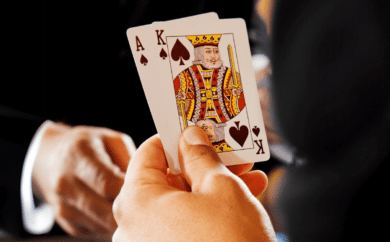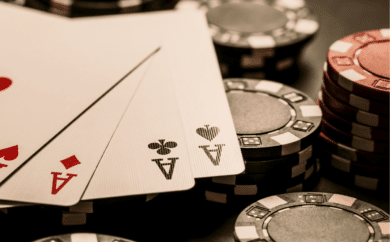If you can identify signs that someone has a gambling addiction and help them in time, you might just be saving a life. This is because uncontrolled and untreated addictions can lead to a chain of other vices, including crime, which can put the person at an even greater risk.
Research proves that 27% of people with a gambling problem are likely to commit a crime, fall into depression or unalive themselves. Furthermore, gambling addictions have been classified as a form of mental disorder that can progress and cause devastating effects.
Therefore, if you suspect that a loved one or someone you know has unhealthy gambling habits, it’s crucial that you offer or get help for them.
5 Signs that a person has gambling addictions
Obsession with gambling
Does your loved one constantly talk about gambling or seem to relieve their past gambling experiences? So much so that they are on their phones, laptops or tablets placing bets or playing casino games every other time.
Unable to stop and withdrawal symptoms when not gambling
Have you ever heard a person express that they will quit gambling only to find them gambling hours later or on the next day? Pay attention to their mood and behaviour whenever they are not playing to see if they have withdrawal symptoms like:
- Anxiety.
- Irritability.
- Change in sex drive.
- Insomnia and reduced appetite.
Lies and efforts to hide their gambling
A person who is aware of their excessive gambling habits might try to downplay how much they gamble by hiding it from their loved ones. This stage of the gambling addiction comes with shame, but the gamblers are still unable to stop, so they hide.
- Do they hide their devices when you come around?
- Do they clear their devices’ history?
- Does the person get defensive when you ask them if they have gambled off late?
- Is the person always trying to spend time alone on their phone?
Dysfunctional lives and financial problems
A person who is suffering from a gambling disorder or lunomania is highly likely to have a dysfunctional social life as well. Moreover, they might experience trouble at work and home. If the person has the signs below, they need help.
- The individual constantly borrows money to cover major expenses like rent and mortgage.
- Inability to pay utility bills even though the person is working or has a regular income.
- They use falsehoods to ask for money or convince others to give them money.
- No social life, no hobbies, and the person no longer cares about their relationships.
Made a poor decision during or because of gambling
A gambler who prioritises gambling above all other aspects of life needs urgent help. A self-assessment quiz might assist you and your loved one in determining if they have a problem with irresponsible iGaming.
- Has the person ever committed or wanted to commit a crime to fund their gambling?
- Is there any day that the individual postponed work or an important event and instead gambled?
- Do they feel like gambling even when at work?
- If the person is a parent, have they ever dismissed their children because they were gambling on a game?
- Has your loved one ever used money they couldn’t afford to gamble, such as bills, school fees, money for groceries, etc.?
4 Ways to help someone with a gambling problem
If you have recognized any of these symptoms in someone you know and you are ready to help, here are some tips.
Talk to them
Approach the person from a caring and loving point of view instead of outright criticism. Let them know you care and speak to them calmly about what you have noticed. You dolls have this conversation in a private, quiet, and calm space without distractions.
Offer support, and don’t judge.
Most importantly, remind them that gambling addictions are treatable and that you will be there for them throughout this journey. It sounds more comforting to start sentences with ‘I’ instead of ‘You’.
For example:
“I am concerned you are spending a lot of money and time on gambling, and the family misses you at those times.” Instead of “You are spending too much money and time on gambling that you don’t even spend with us!”
Explain the consequences
Using a calm and objective tone, talk to them about the mental, physical, financial and social harms of lunomania (excessive gambling). You can also share research reports, watch documentaries and listen to podcasts that show them the dire consequences of uncontrolled gambling.
It is also helpful if you:
- Share with them content that will make them self-aware of their gambling problems and block gambling addresses in their devices.
- Introduce fun or rewarding activities to replace gambling. For example, get them a gym membership, encourage them to learn a new instrument, go on vacation, join a social club, or more.
Recommend and get them professional help
Finally, encourage your loved one to receive support and help from a professional. A mental health expert can help them cope with withdrawal symptoms and use proven therapies to assist the in quitting gambling altogether. Common therapies include
- Cognitive behaviour therapy.
- Motivational interview.
- Medication.
- Meditation.
If you or someone you know needs self-exclusion from their current casinos in the UK, contact GamCare or BeGambleAware for assistance.




